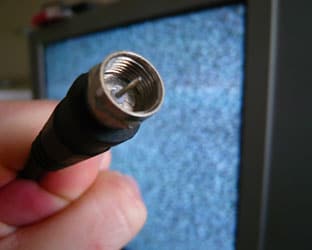Media activist group Free Press has a new report called “Citizens Inundated” which essentially charges that broadcasters are benefitting from the influx of unprecedented expenditure on political advertising, all while scaling back on effective political reporting. NAB pushed back, saying there’s plenty of coverage and questioning the research the watchdog used as the basis of its case.
Free Press said that the Supreme Court’s Citizens United ruling is giving monied interests the opportunity to buy elections, and said a number of steps need to be taken to counteract the effects of the SCOTUS ruling.
Said Free Press, “Broadcast media, understandably, have no interest in shedding light on this excessive transfer of money. As a result, we are facing a crisis that threatens to undermine the most important single action people take in a democracy: voting.”
“The numbers tell the tale,” said the watchdog. “A 2011 FCC staff report found that 33 percent of commercial TV stations air little to no local news whatsoever. For those that do air news, the picture remains dim. Nearly two-thirds of local TV news directors reported staff cuts in 2009, as bosses slashed their reporting budgets. This translates into fewer reporters on the political beat and less objective reporting about electoral issues. A 2010 USC Annenberg School report showed that in the average 30-minute local news broadcast, less than 30 seconds is devoted to hard local government news, including reporting on political campaigns.”
Meanwhile some 200,000 political ads are expected to air by the time Election Day rolls around.
NAB’s Dennis Wharton took issue with the Free Press report. “Free Press apparently believes there’s too little election coverage, a premise that seems shaky given the political discourse, debates and candidate coverage that Americans see and hear every day on many broadcast stations.”
Wharton added, “What’s more troubling is that Free Press cites discredited research as the basis for additional rules on broadcasting. This ‘research’ only counts political coverage that occurs during the narrow timeframe of weekday evening newscasts, thus ignoring campaign coverage on morning news programs, noon news, weekend public affairs shows, televised debates, State of the Union speeches and political coverage on local broadcast station websites. By embracing past studies that ignore the totality of our campaign coverage, Free Press demonstrates a disturbing intellectual dishonesty reminiscent of their previous attacks on broadcasting.”




